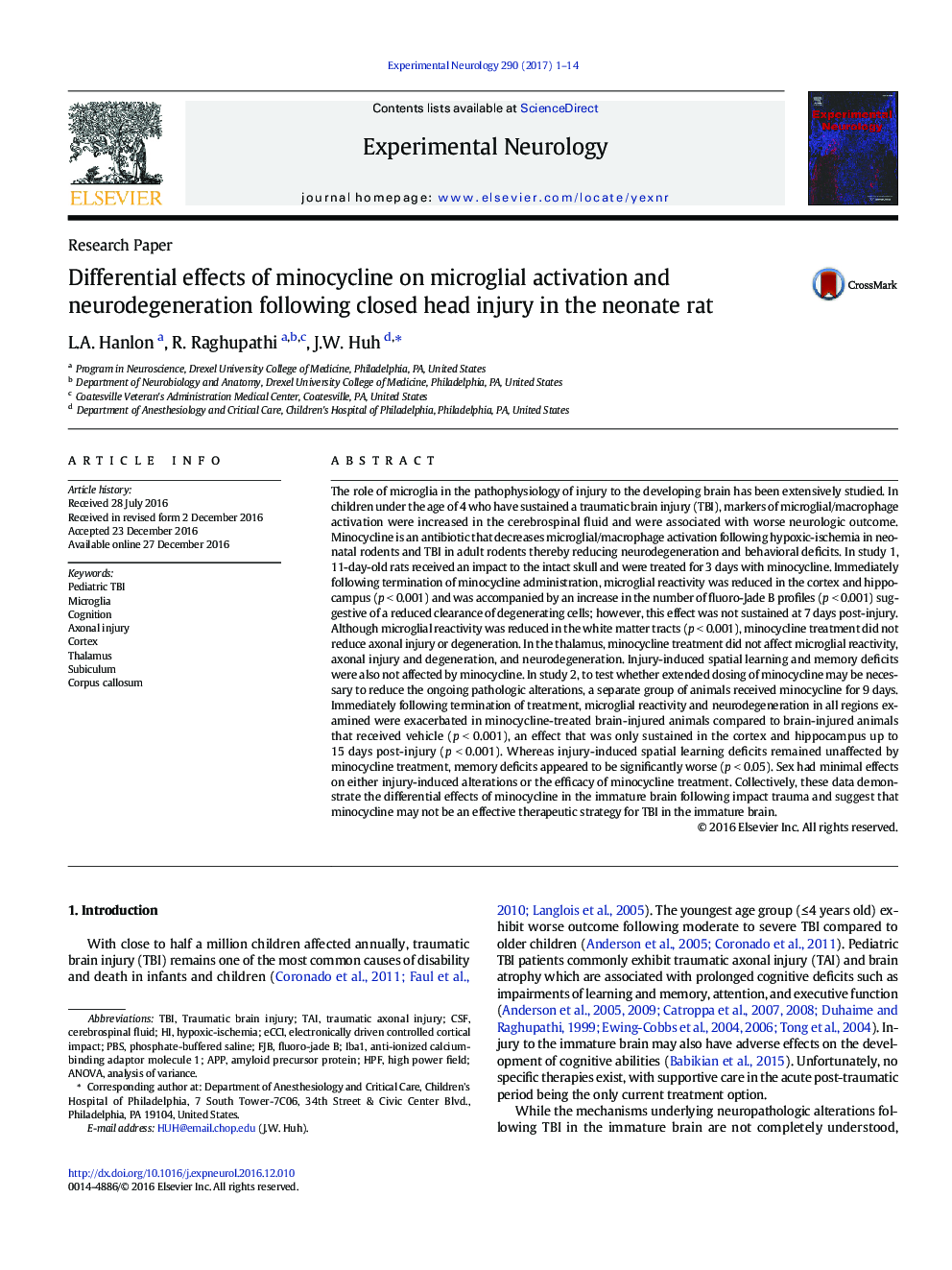| کد مقاله | کد نشریه | سال انتشار | مقاله انگلیسی | نسخه تمام متن |
|---|---|---|---|---|
| 5629289 | 1580149 | 2017 | 14 صفحه PDF | دانلود رایگان |
- Minocycline administration for 3d after TBI in the neonate rat reduced microglial activation but exacerbated neurodegeneration
- Minocycline administration for 3d after TBI failed to attenuate spatial learning and memory deficits
- Minocycline administration for 10d after TBI worsened microglial activation and neurodegeneration
- Minocycline administration for 10d after TBI did not attenuate spatial learning deficits and exacerbated memory deficits
- The effects of minocycline administration was not influenced by the sex of the brain-injured animal
The role of microglia in the pathophysiology of injury to the developing brain has been extensively studied. In children under the age of 4 who have sustained a traumatic brain injury (TBI), markers of microglial/macrophage activation were increased in the cerebrospinal fluid and were associated with worse neurologic outcome. Minocycline is an antibiotic that decreases microglial/macrophage activation following hypoxic-ischemia in neonatal rodents and TBI in adult rodents thereby reducing neurodegeneration and behavioral deficits. In study 1, 11-day-old rats received an impact to the intact skull and were treated for 3 days with minocycline. Immediately following termination of minocycline administration, microglial reactivity was reduced in the cortex and hippocampus (p < 0.001) and was accompanied by an increase in the number of fluoro-Jade B profiles (p < 0.001) suggestive of a reduced clearance of degenerating cells; however, this effect was not sustained at 7 days post-injury. Although microglial reactivity was reduced in the white matter tracts (p < 0.001), minocycline treatment did not reduce axonal injury or degeneration. In the thalamus, minocycline treatment did not affect microglial reactivity, axonal injury and degeneration, and neurodegeneration. Injury-induced spatial learning and memory deficits were also not affected by minocycline. In study 2, to test whether extended dosing of minocycline may be necessary to reduce the ongoing pathologic alterations, a separate group of animals received minocycline for 9 days. Immediately following termination of treatment, microglial reactivity and neurodegeneration in all regions examined were exacerbated in minocycline-treated brain-injured animals compared to brain-injured animals that received vehicle (p < 0.001), an effect that was only sustained in the cortex and hippocampus up to 15 days post-injury (p < 0.001). Whereas injury-induced spatial learning deficits remained unaffected by minocycline treatment, memory deficits appeared to be significantly worse (p < 0.05). Sex had minimal effects on either injury-induced alterations or the efficacy of minocycline treatment. Collectively, these data demonstrate the differential effects of minocycline in the immature brain following impact trauma and suggest that minocycline may not be an effective therapeutic strategy for TBI in the immature brain.
Journal: Experimental Neurology - Volume 290, April 2017, Pages 1-14
